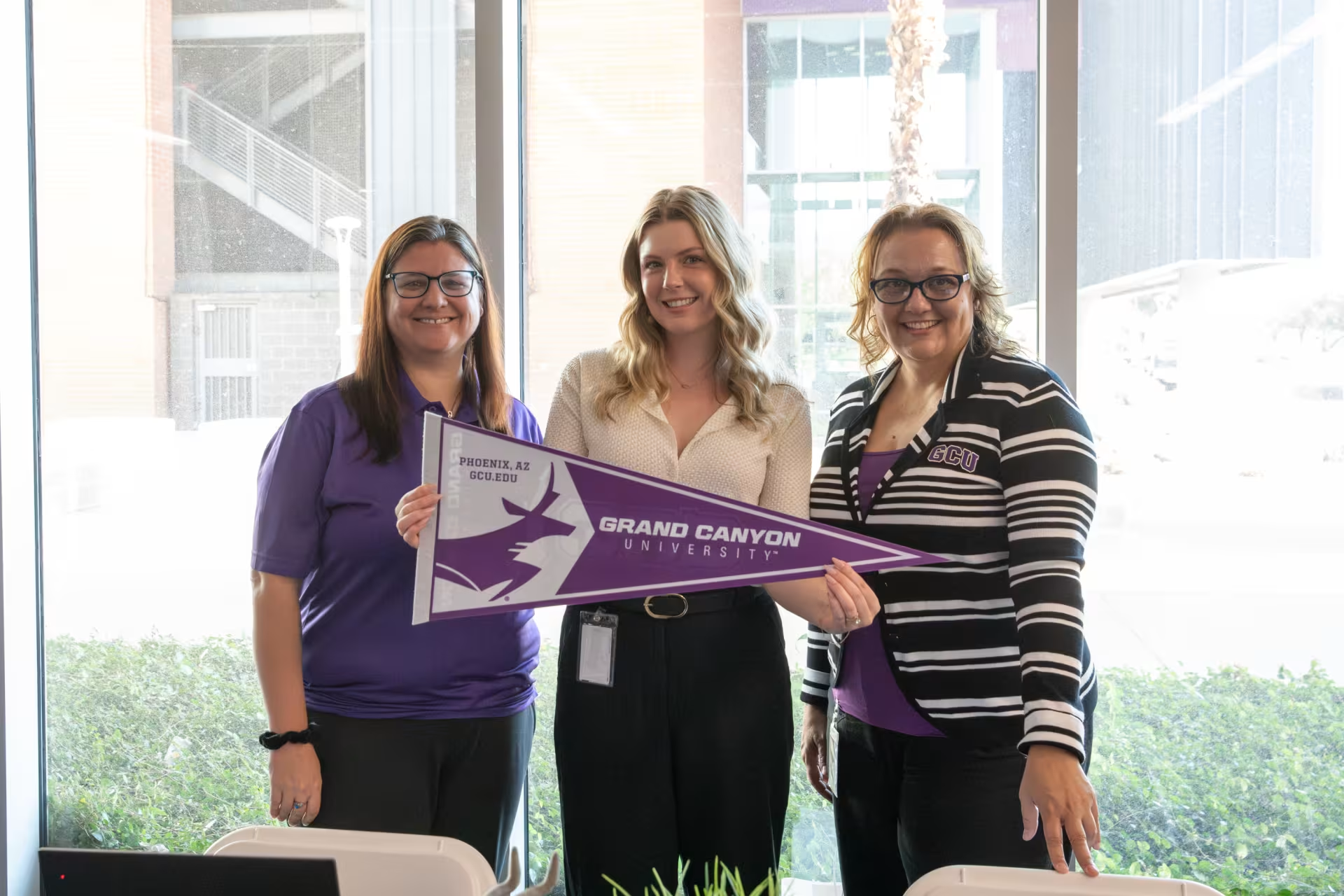
Bachelor’s Degree in Applied Human Resources Management
Earn Your Applied Human Resources Management Degree From GCU
The BS in Applied Human Resources Management degree at Grand Canyon University can equip you with the essential skills and knowledge necessary for a successful career in human resources. The bachelor’s HR degree program emphasizes how industries and organizations use human resources management to enhance their overall performance and success. Courses and assignments allow you to develop the ability to apply these skills in a variety of different contexts and across numerous fields and types of organizations.

Up to 90 credits, only 84 can be lower division
Credits: Fill out the Lopes Eval to find out what will transfer
Admission Requirements (Bachelor's)
- 16+ years old
- High School Graduate
- 3.0+ Unweighted GPA
OR 2.5+ Unweighted GPA and
- ACT: 19
- SAT: 1000*
Admission requirements may differ based on degree level, program and modality, or transfer status. Some programs of study may require a higher GPA and/or other qualifying criteria for admission. Please review full admission and program requirements in the University Policy Handbook.
*Math and reading only on a 1600 point scale (test date after 3/1/2016). SAT score of 1380 required for 2400 point scale (test date before 3/1/2016).
Benefits of Earning Your HR Management Degree
The BS in Applied Human Resources Management degree program integrates the Christian worldview into each course, allowing you to build a faith-based foundation grounded in biblical principles. This Christian perspective pairs with the degree program’s focus on practicing human resources management ethically. This HR degree shows you how you can use your skills to foster a safe, encouraging and equal environment for all members of an organization.
The skill set and experience developed through the human resources degree can position graduates to enter the industry prepared to have a direct impact on the success and culture of many different types of organizations. From large, multi-million dollar corporations to small nonprofits, you will have learned how to efficiently manage the human aspects of an organization.

Median annual wage of human resources managers was $126,230 in May 2021.1

Online Human Resources Degree Topics
Each core class within this bachelor of human resources management degree program prepares you to handle a different aspect of human resources management, including employee recruitment, selection, placement, retention, total compensation, training, development and performance management. Courses are taught by industry professionals, so you can combine theory with the valuable wisdom and experience that your instructors have developed throughout their careers.
The human resources degree program aims to give you a holistic picture of how human resources impacts organizations on the macro level and to teach how to manage smaller, more specific facets of human resources. Focus areas within the program include project management, organizational behavior, business communications and employee relations.
Opportunities for HR Degree Graduates
Many HR positions offer significant opportunities for advancement. The background and skills developed through earning a degree in human resources management can even position you for high-level positions at the director or vice president level later on in your career.
Students with a passion for people can find their purpose through a human resources degree. Those with strong skills in communication, leadership and motivation can use the human resources Bachelor of Science degree from GCU to turn these natural abilities into a rewarding and fulfilling career.
Graduates of the program are prepared for positions in talent and human management across many fields and industries, including job titles such as:
Bachelor’s Degree in Human Resources FAQs
If working with people is your purpose, read through our frequently asked questions to learn more about a career in the field and earning your human resource bachelor’s degree online or on campus.
Is a bachelor’s degree in human resources worth it?
What degree is best for human resources careers?
Is a bachelor’s in HR a difficult degree?
What qualifications do I need to work in HR?
Program Curriculum
General Education Requirements
Core Courses

Earn your human resources management degree from Grand Canyon University.
- The earnings referenced were reported by the U.S. Bureau of Labor Statistics (“BLS”), Human Resources Managers, as of May 2021, retrieved October 2022. Due to COVID-19, data from 2020 and 2021 may be atypical compared to prior years. The pandemic may also impact the predicted future workforce outcomes indicated by the BLS. BLS calculates the median using salaries of workers from across the country with varying levels of education and experience and does not reflect the earnings of GCU graduates as human resources managers. It does not reflect earnings of workers in one city or region of the country. It also does not reflect a typical entry-level salary. Median income is the statistical midpoint for the range of salaries in a specific occupation. It represents what you would earn if you were paid more money than half the workers in an occupation, and less than half the workers in an occupation. It may give you a basis to estimate what you might earn at some point if you enter this career. You may also wish to compare median salaries if you are considering more than one career path. Grand Canyon University can make no guarantees on individual graduates’ salaries as the employer the graduate chooses to apply to, and accept employment from, determines salary not only based on education, but also individual characteristics and skills and fit to that organization (among other categories) against a pool of candidates.


